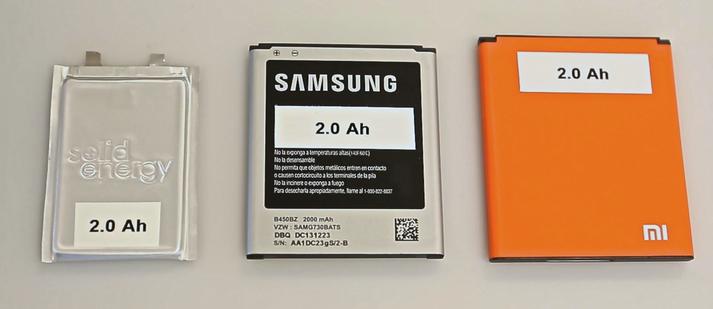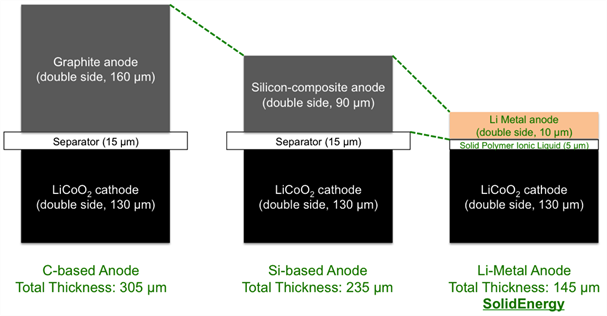Project Ara To Use SolidEnergy's Revolutionary Battery Technology In 2016

Module makers for Project Ara are already lining up to create third-party modules for the platform, and one of the more interesting ones is Solid Energy, which promises to make revolutionary batteries that have twice the capacity of current batteries.
SolidEnergy is an MIT startup with $4.5 million in funding, and it has 12 employees who have been working on this new technology for the past three years. The company has developed an ultra-thin metal anode that has twice the density of the graphite and silicon anodes commonly used in smartphone batteries.
The current lithium-ion battery technology that uses graphite anodes has been commercialized since 1991, when Sony first launched it on the market. A graphite anode is more limited in how much energy it can store, which is why SolidEnergy tried to solve the energy storage problem using an ultra-thin metal anode that can raise the energy density of the battery up to 1,200Whr per liter. A graphite anode can only hold less than 600Whr per liter.

SolidEnergy's anode is made of a thin piece of lithium on copper that's less than a fifth the size of a graphite anode. The company provides the electrolyte as well, which is the substance being used to move a charge back and forth between the anode and cathode. It can work at room temperature, while other metal anodes have to work at a higher temperature.
SolidEnergy is going to target its battery technology at smartphones, because it seems you can never have too much battery life in a mobile device. Most smartphones barely last a day under moderate use. Because the company can just sell its own battery modules to consumers and because its batteries can store twice as much energy than the competitors, SolidEnergy has chosen to make batteries for Project Ara at first.
“Our battery basically makes the Project Ara phone more practical," said SolidEnergy founder and CEO Dr. Qichao Hu in an interview. "Right now, one of the major challenges with this phone is that the battery life is too short."
Project Ara only has room for so many modules, and the battery module isn't particularly large in size. That makes high storage capacity very compelling. SolidEnergy will begin commercializing its own batteries in 2016. Batteries targeted at electric vehicles will follow in 2017.
Stay On the Cutting Edge: Get the Tom's Hardware Newsletter
Get Tom's Hardware's best news and in-depth reviews, straight to your inbox.
Follow us @tomshardware, on Facebook and on Google+.
-
Gunbuster And here I was hoping to see ugly and buggy customized phones sometime this year. Project Ara, doing "Coming Soon" even better than Microsoft.Reply
-
legokangpalla I'd hate to rain on Solid Energy's parade-in fact I want to encourage them, the battery comparison image above is a bit exaggertated. You are comparing a single battery cell with no add on to other battery packs which contains protect circuit boards, battery management system, and other extras that makes them bigger physically.Reply -
SchizoFrog I also don't think that this tech will be limited to Project Ara devices. When improved batteries are developed, all device manufacturers will use them.Reply -
tanjali It is a due time for Intel to go into energy storage business and make some nano-scale battery tech.Reply -
icemunk I'm eager to see the types of pricing manufacturer are going to want for Project Ara components.. I have a feeling they're going to be pricey.Reply -
ZolaIII Finally useful & ready for commercial use battery tech! I don't know about pricing but it will be a must have for phone makers pushing ridiculous display resolutions on they big phablets.Reply -
Alex Atkin UK The million dollar question though is how spectacular do these batteries explode when overheated or punctured?Reply
One of the biggest limitations for battery capacity is keeping them safe. The greater their storage density, the more spectacular they explode if they overheat or get punctured.
I assume they have a plan though seeing as automotive batteries in particular have to be crash resistant.
